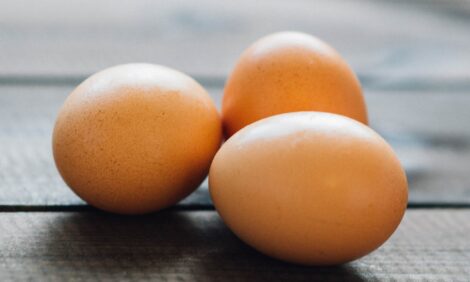



Genetic Variations Alter Physiological Responses Following Heat Stress in 2 Strains of Laying Hens
US - Heat stress (HS) is a major problem experienced by the poultry industry during high-temperature conditions.The ability to manage the detrimental effects of HS can be attributed to multiple factors, including genetic background of flocks, according to a team of resaerchers from the USDA Agricultural Research Service.
The objective of present study was to determine the genetic variation in HS effects on laying hens’ physiological homeostasis, according to the team of J. N. Felver-Gant, L. A. Mack, R. L. Dennis, S. D. Eicher and Heng-Wei Cheng from the USDA ARS.
Ninety 28-wk-old White Leghorn hens of 2 strains were used: a commercial line of individually selected hens for high egg production, DeKalb XL (DXL), and a line of group-selected hens for high productivity and survivability, named kind gentle bird (KGB).
Hens were randomly paired by strain and assigned to hot or control treatment for 14 d. Physical and physiological parameters were analyzed at d 8 and 14 posttreatment. Compared with controls, HS increased hen’s core body temperature (P < 0.05) and decreased BW (P < 0.05) at d 8 and 14.
Heat shock protein 70 concentrations in the liver were greater in hens exposed to HS (P < 0.05). Compared with DXL hens, KGB hens had higher heat shock protein 70 concentrations (P < 0.05). The hens’ liver weight decreased following HS, with less of a response in the KGB line (P < 0.05).
The data indicate HS has detrimental effects on the physiology of laying hens due to genetic variations. These data provide evidence that is valuable for determining genetic interventions for laying hens under HS.
The results are published in Poultry Science.











